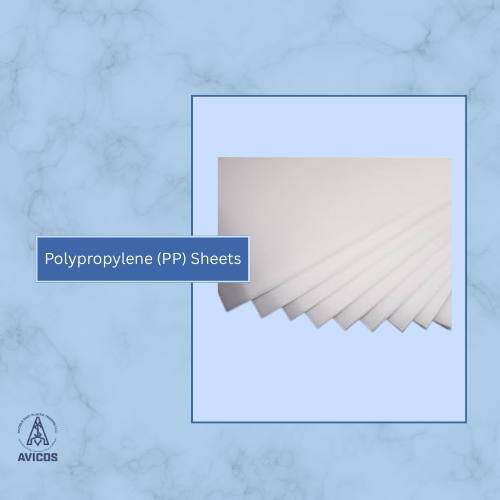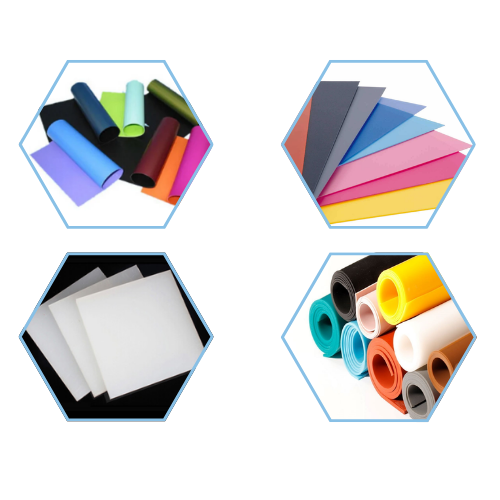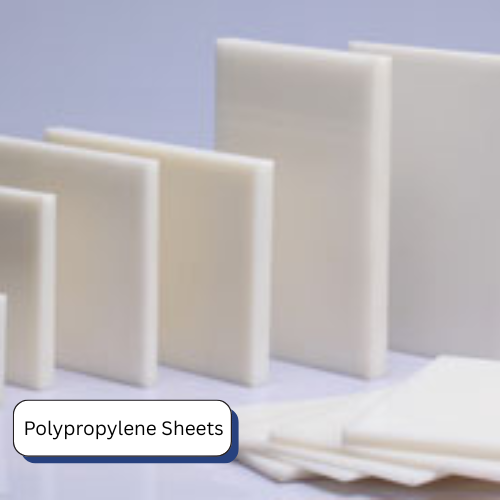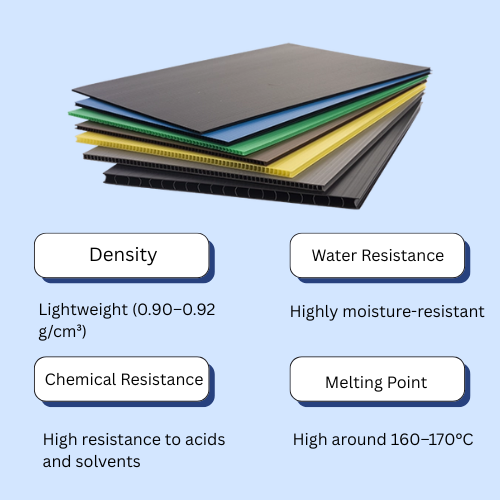What is Polypropylene (PP) Sheets Polypropylene (PP) Sheets
Polypropylene (PP) sheets are flexible plastic sheets generally used across many industries in the Middle East. They are known for their perfect mix of strength, lightweight, and durability. They resist chemicals and moisture, which makes them a reliable choice for packaging, construction, and automotive applications.
PP sheets also give thermal stability and are recyclable, which aligns with eco-friendly approaches. These sheets are a cost-effective and convenient choice for manufacturers and businesses throughout the UAE, Dubai, Qatar, Oman, and nearby regions.
Features
Here are the features that make polypropylene sheets a popular and trustworthy choice for many applications.
- Lightweight: One of the lightest thermoplastics, making it easy to handle, transport, and save material.
- Durable: Strong against impact and repeated bending; can handle heavy loads without breaking.
- Chemical Resistance: Resists acids, alkalis, and several solvents, suitable for tough industrial uses.
- Low Moisture Absorption: Absorbs very little moisture, so it stays waterproof and stable in wet conditions.
- Food-Grade Safe: Some grades are approved for contact with food and drinks.
- Good Heat Resistance: PP sheets melt around 160–166°C, good for hot-fill and sterilisation uses.
- Recyclable: Fully recyclable, making it a sustainable choice.
- Electrical Insulation: Offers excellent resistance to electricity, useful in electronic parts.
- Versatile: Easy to shape and modify for different needs with additives.
- Cost-Effective: Balances good performance with an affordable price.
Applications
Polypropylene PP sheets are used in packaging to cover food, pharmaceuticals, and electronic products due to their durability and moisture resistance. In construction, they serve as insulation panels, protective barriers, wall linings, and roofing sheets that hold up well against chemicals and water. The automotive industry uses PP sheets for interior parts, battery cases, and bumpers because they are lightweight and strong.
Their adaptability makes them flawless for markets in the UAE, Dubai, Qatar, Oman, and surrounding areas. Additionally, PP sheets are valuable in medical fields for sterile trays and surgical equipment. They are also used in everyday office items like folders and displays, proving their versatility across many applications in the Middle East.
How to Use Polypropylene (PP) Sheets?
There are a few steps that must be followed when dealing with polypropylene sheets.
- Make sure the sheet surface is clean and dry before sticking or printing on it.
- Use a blunt knife and a straight edge to cut the sheets neatly.
- For outdoor use, pick UV-protected PP sheets to stop damage from the sun.
- You can shape, weld, or bend the sheets easily to suit your project.
- Store the sheets in a cool, dry spot away from direct sunlight.
- Collect leftover sheets and recycle them whenever possible.
- Follow the temperature guidelines when heating or welding the sheets.
- If using it for food packaging, confirm that the sheet grade is approved for food safety.
- These easy steps help you get the most from PP sheets for any use.
Safety Guidelines
Always follow basic safety measures carefully to ensure safe use of PP sheets.
- Wear gloves to prevent burns from hot PP sheets.
- Use safety glasses when cutting or sanding.
- Work in a well-ventilated area to avoid fumes.
- Keep sheets away from flames and heat.
- Store in a cool, dry, shaded place.
- Keep the workspace clean to avoid accidents.
- For burns, rinse with cold water and get medical help.
- Use masks if exposed to dust or fumes.




